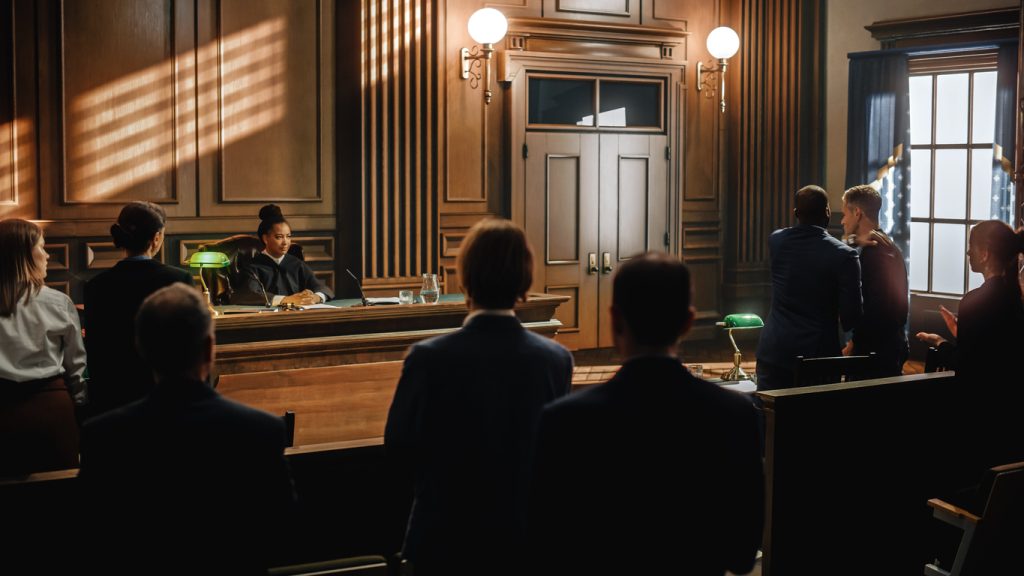When a crime is committed, it’s not always the person physically carrying out the act who faces legal consequences. In many cases, others who assist, encourage, or facilitate the crime may be held just as accountable. These individuals are often referred to as accomplices. The law recognizes that aiding or encouraging someone to commit a crime can be just as harmful as committing the crime yourself. This blog post explores the concept of being charged as an accomplice, the legal requirements, common defenses, penalties, and the significance of these charges in the criminal justice system.
What is an Accomplice?
In criminal law, an accomplice is anyone who knowingly assists, encourages, or facilitates the commission of a crime. An accomplice may not have committed the crime themselves, but they are still legally responsible because their actions helped enable the crime to occur.
Accomplices are held criminally responsible in much the same way as the principal offenders who actually carry out the crime. The legal system treats accomplices with equal severity as it does the principal perpetrators of the crime, depending on the circumstances.
It is essential to distinguish between different roles in criminal activities to understand how accomplice liability works:
-
Principal: The person who directly commits the crime.
-
Accomplice: The person who helps or encourages the principal in committing the crime.
-
Accessory: A person who assists in a crime after the fact, such as helping to hide evidence or harboring the criminal.
Being charged as an accomplice is a serious matter and can carry severe legal consequences. Even if you didn’t physically participate in the crime, you could still face criminal liability.
Key Elements for Being Charged as an Accomplice
In order to be charged as an accomplice, certain elements must be proven. These are fundamental aspects of accomplice liability and are necessary for the prosecution to establish guilt:
-
Intent to Assist in the Crime
One of the key elements for being charged as an accomplice is the intent to help or encourage the principal offender. It is not enough to simply be present at the scene of the crime; the accomplice must have intended to facilitate or promote the commission of the crime. For example, someone who gives a weapon to another person intending to use it in a robbery can be charged as an accomplice. -
Knowledge of the Crime
An individual can only be charged as an accomplice if they are aware that a crime is being planned or committed. If someone helps another person without knowing they are committing a crime, they are generally not considered an accomplice. However, if a person should have known that their actions were contributing to a crime, they could still be charged. -
Direct Involvement or Assistance
The person must have directly assisted in the commission of the crime. Whether through providing tools, encouragement, or direct help during the crime, the accomplice must have been involved in some capacity. Passive presence at the crime scene does not make someone an accomplice unless there is clear evidence of active participation.

Examples of Being Charged as an Accomplice
To better understand when someone can be charged as an accomplice, here are several practical scenarios:
-
Scenario 1: Providing Tools for the Crime
If you provide a weapon to a friend who intends to use it to commit a robbery, you could be charged as an accomplice. Even though you did not physically participate in the robbery, your actions helped facilitate the crime by providing the necessary tool. -
Scenario 2: Encouraging or Promoting Criminal Behavior
Imagine you encourage a friend to commit fraud by advising them on how to falsify documents. Your words or actions would be seen as supporting the crime, even if you didn’t participate in the fraudulent activity yourself. In this case, you could be charged as an accomplice. -
Scenario 3: Helping After the Crime
If someone helps a criminal hide stolen goods or assists them in evading capture after the crime has been committed, they may still face charges as an accomplice. Assisting in evading arrest or concealing evidence after the crime does not absolve someone from liability.
These examples illustrate that accomplice liability extends beyond the individuals who directly carry out the crime. If someone aids or encourages the commission of the crime, they can be held just as responsible.
Legal Defenses Against Being Charged as an Accomplice
Being charged as an accomplice can have serious legal consequences. However, there are several defenses that can be used to challenge the charges:
-
Lack of Intent
One of the most common defenses in accomplice liability cases is that the defendant did not have the intent to assist or encourage the crime. For instance, if someone did not know that the person they helped would commit a crime or if they were unaware of the criminal intent, they may not be held liable as an accomplice. -
Withdrawal from the Crime
If the defendant was initially involved in the crime but later withdrew their support or assistance before the crime was completed, they may be able to argue that they are not liable. Withdrawal usually involves taking steps to prevent the crime or notifying law enforcement. -
Duress
Duress is a legal defense in which the defendant argues that they were coerced or threatened into participating in the crime. To successfully use this defense, the defendant must show that they faced an immediate threat of harm or death if they did not assist in the crime. -
Mistake of Fact
If the defendant made a reasonable mistake about the facts and did not know that their actions were contributing to a crime, they may be able to avoid liability. For example, if someone unknowingly helped transport stolen property without realizing it was stolen, they may be able to use the mistake of fact defense.
Penalties for Being Charged as an Accomplice
If you are convicted as an accomplice, the penalties can be severe. In many cases, an accomplice can face the same penalties as the principal offender, depending on the nature and severity of the crime. For instance:
-
Imprisonment
An accomplice can face significant prison time, especially if the crime is violent or involves serious harm. The length of the sentence typically corresponds to the severity of the offense committed. -
Fines
In addition to imprisonment, an accomplice may be required to pay fines as part of their sentence. These fines can be substantial, depending on the nature of the crime. -
Probation
In some cases, the court may impose probation instead of or in addition to a prison sentence. Probation often comes with conditions such as regular check-ins with a probation officer, community service, or restrictions on travel.
In cases of violent crimes, such as murder or robbery, accomplices are often sentenced to the same penalties as those who directly commit the crime. The penalties for being charged as an accomplice are not always less severe than those for the principal offender.

Case Studies and Precedents
Several cases have shaped how accomplice liability is handled in the legal system. One example is the case State v. Johnson, where the defendant was convicted of being an accomplice to a robbery despite not entering the store. The court ruled that the defendant’s role in planning the robbery and providing the getaway car made them equally culpable.
Similarly, in People v. Perez, the defendant was charged as an accomplice for providing tools to help commit a crime. The court held that providing tools for a crime was sufficient to establish accomplice liability, even if the defendant was not physically present at the crime scene.
These case precedents highlight that accomplice liability can extend to various types of assistance, including planning, encouragement, and after-the-fact support.
Importance of Legal Representation
Being charged as an accomplice is a serious matter that can result in significant penalties. If you are facing such charges, it is critical to seek legal representation. A criminal defense attorney can assess your case, explain your legal rights, and provide a defense strategy tailored to your circumstances.
An experienced attorney can help challenge the prosecution’s evidence, negotiate a plea deal, or present a case for reduced charges or sentencing. They will also ensure that you receive a fair trial and protect your constitutional rights.
For more detailed information on accomplice liability and when you can be charged as an accomplice, consider reading more in-depth material on Charged as an Accomplice.
Additionally, for more on legal principles related to accomplice liability, check out this article on Understanding Accomplice Liability in Criminal Law.
Legal Resources and Government Link
In cases of accomplice liability, the law can be complex, and it’s crucial to have access to the proper legal resources. The United States Department of Justice (DOJ) provides a wealth of information on criminal liability and accomplice law on its website. To learn more about the legal implications of being an accomplice or for additional resources, visit the DOJ’s criminal law page.
Conclusion
Being charged as an accomplice is a serious legal matter that can lead to severe criminal penalties. Understanding when you can be charged, what constitutes accomplice liability, and the legal defenses available to you is essential. If you are accused of being an accomplice, it is important to consult with a skilled criminal defense lawyer to ensure your rights are protected.
Whether you were directly involved in the crime or played a supporting role, the law may hold you equally responsible for the crime. Make sure you have the proper legal guidance to navigate these complex charges.
